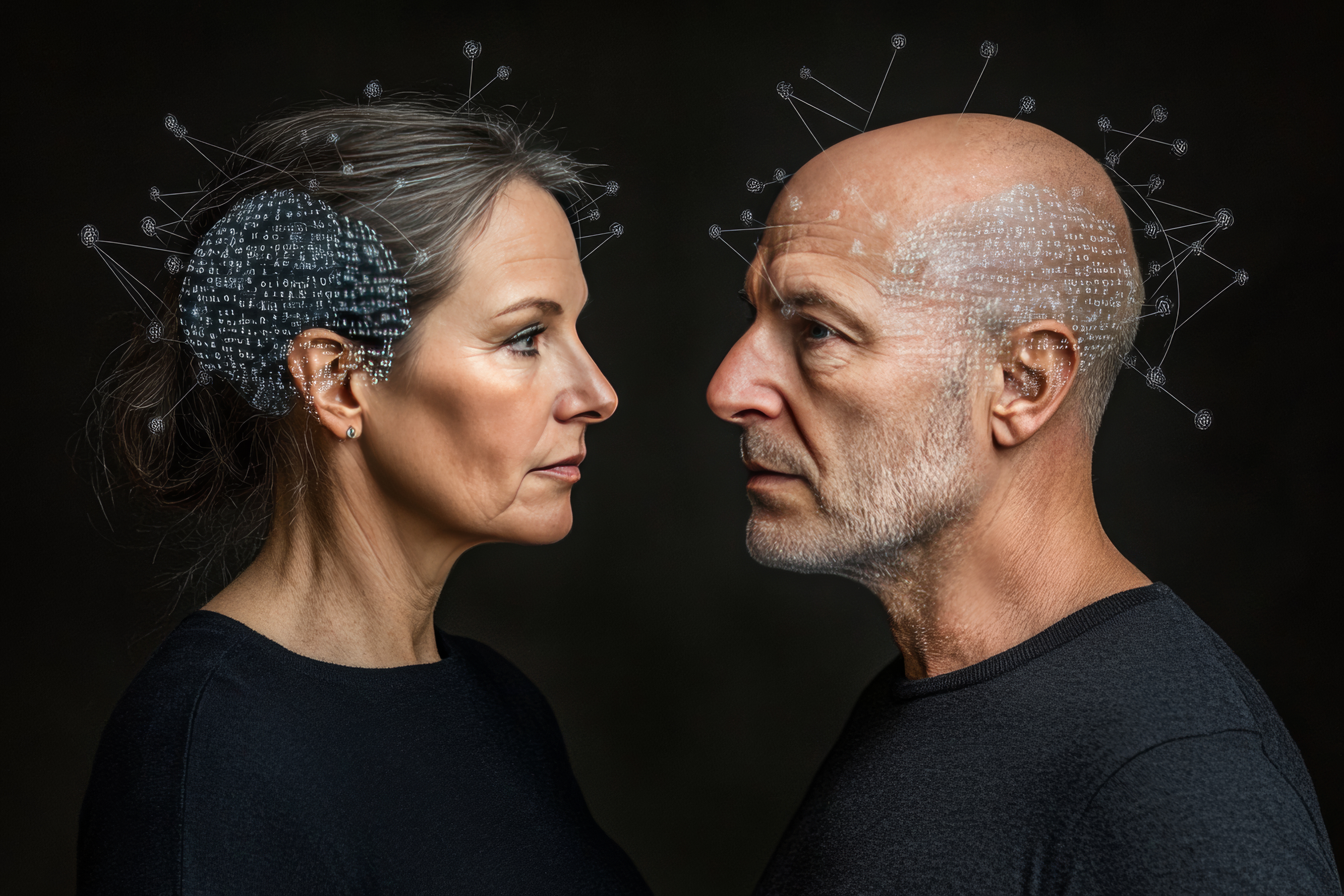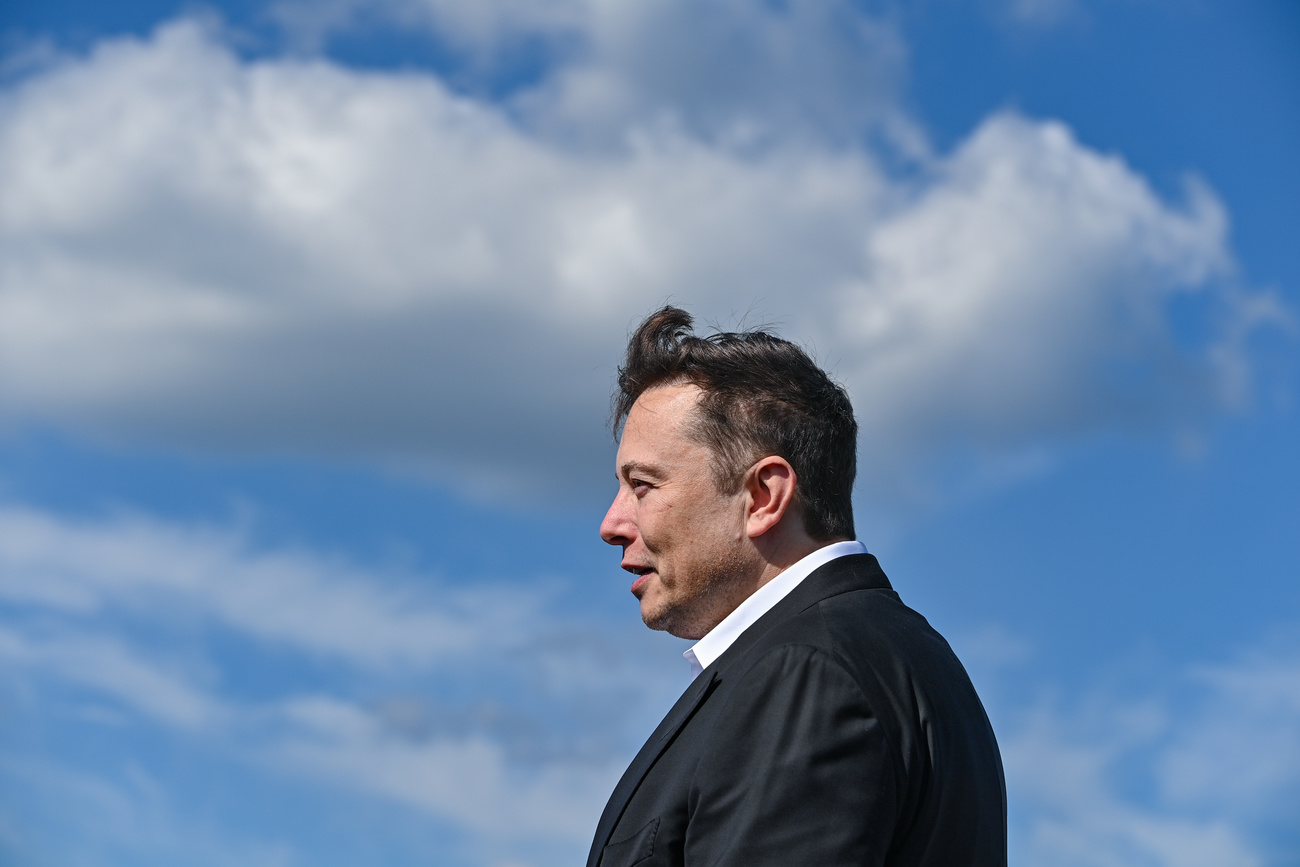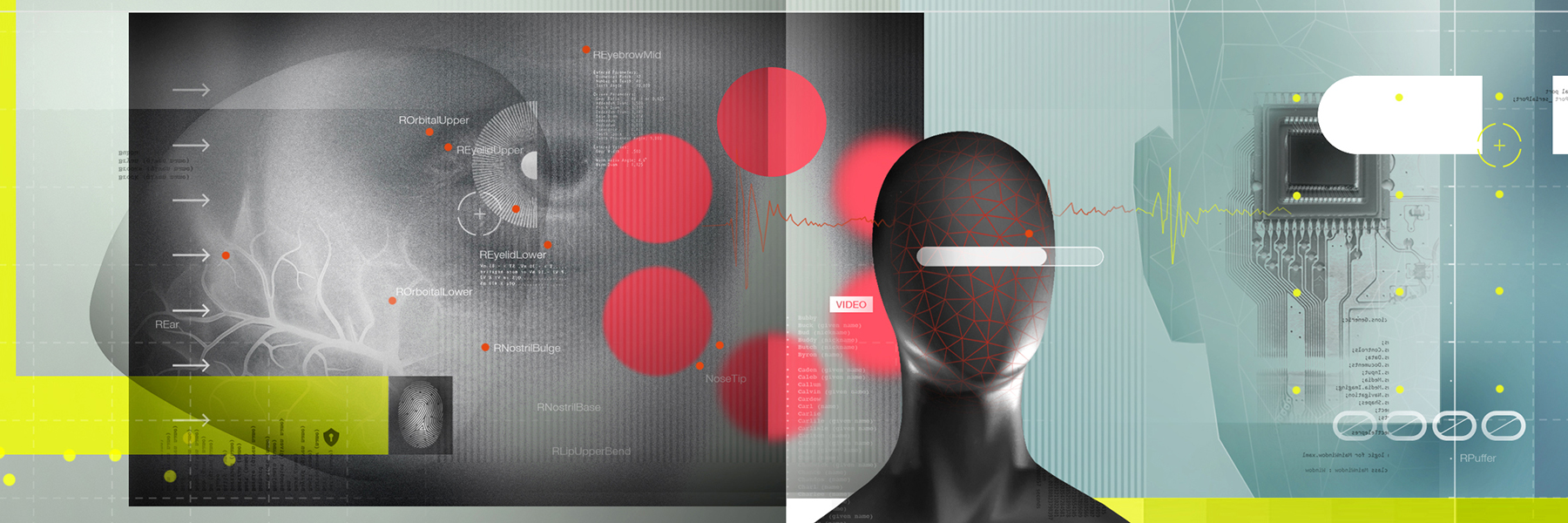AI-powered neurotechnologies raise hopes and fears for health and privacy in Geneva

Neurotechnologies integrating artificial intelligence (AI) can treat diseases such as Parkinson's and depression and improve mental well-being, but they can also alter the brain and read the mind. From Switzerland, the global community is pushing to regulate them, especially when in the hands of private companies like Elon Musk's Neuralink.
The first electrode capable of recording brain activity was implanted in a human skull in 1924. A century later, neurotechnologies powered by artificial intelligence (AI) are now able to restore speechExternal link and mobility to people suffering from aphasia and motor disabilities. Integrating AI into brain-interfacing devices enables the interpretation of complex neural data in real-time and to tailor responses to individual patient needs. This innovation holds promise for expanding treatment options for neurodegenerative disorders such as Parkinson’s and Alzheimer’s disease.

More
Newsletters
While these technological advancements offer hope, they also raise serious questions about their potential to reshape personality and infringe on freedom of thought.
“Neurotechnologies can undermine privacy, autonomy, and mental integrity like never before,” says Milena Costas Trascasas, a human rights independent expert at the United Nations (UN).
The boom in consumer neurotechnologies for mental wellness, such as headbands that monitor brain activity to reduce stress or improve sleep, is entering a dangerous grey area, according to Costas Trascasas. Private companies control the development of these technologies and may access, analyse and use neural data for commercial purposes.
“We’re talking about exploiting the last resort of privacy, which is the mind,” Costas Trascasas says.
This is why the Geneva-based United Nations Human Rights Council has tasked its advisory committee, which includes Costas Trascasas, to prepare a reportExternal link on the impact and challenges of neurotechnologies. UNESCO has also warnedExternal link of threats to mental privacy and is working on global recommendationsExternal link.
In addition to “neuromarketing,” the UN report also highlights immersive computing devices, like “neurogaming,” as particularly worrisome commercial applications, especially for young people, who risk being drawn into compulsive use and addiction. Technologies aimed at improving work performance and concentration raise numerous ethical and legal questions, as do those promising to enhance human capacities and resilience to stress and emotions, particularly in military contexts.
“Many of these promoted uses are concerning because we don’t know the effects they could have on mental health and personal integrity,” explains Costas Trascasas.

Innovative treatments with AI, but at what cost?
In Switzerland, the scientific community is also busy investigating the negative effects of neurotechnologies. The international project Hybrid MindsExternal link, which includes several Swiss universities, studied more than 80 patients with neurological or psychiatric conditions, such as Parkinson’s or obsessive-compulsive disorder. Many patients found neurological prosthetics beneficial, but some felt a kind of detachment from themselves, “as if the artificial components took over the person’s original intentions,” explains Marcello Ienca, professor of AI ethics at the Technical University of Munich and principal researcher at the EPFL College of Humanities in Lausanne. Others developed such an integration with the technology that they felt “turned off” when the device was deactivated, Ienca notes.
The failure of neurological treatment can also have dramatic consequences. Ienca and psychiatrist Ambra D’Imperio reported the case of a Swiss womanExternal link – affected by a rare genetic disease similar to Parkinson’s – who attempted suicide after undergoing an ineffective deep brain stimulation treatment.
“The patient was in such a severe condition that she clung to the hope of this treatment. The failure was so destabilising that it drove her to attempt suicide,” says D’Imperio, who works at the Bern University Psychiatric Services and handled the case.
For this reason, stresses D’Imperio, it’s crucial to inform patients of the risks and not replace a psychiatrist with an algorithm or machine. This is particularly important as chronic patients are often willing to do anything for a possible cure, even giving up some of their mental privacy and freedom.
Investment boom to treat Parkinson’s, Alzheimer’s, and depression
Despite these risks, neurotechnologies are showing promising results in the treatment of certain neurological and mental diseases. High-frequency brain implants that stimulate certain brain areas can treat early-stage Parkinson’s, restoring almost-normal mobility to patients. Since the late 1980s, about a million people worldwide have benefited from these treatments.
Thanks to AI, it will soon be possible to stimulate many more brain regionsExternal link through the simultaneous use of thousands of electrodes. This will help develop treatments not only for Parkinson’s but also for other illnesses like Alzheimer’s, epilepsy, depression, and schizophrenia – conditions that currently account for a third of Europe’s healthcare costs.

“Even more minor conditions like migraines are a huge problem for our society, both in terms of costs and personal and family suffering,” says French neurologist and neuroscientist Hervé Chneiweiss.
Neurotechnologies are advancing rapidly thanks to substantial funding. Between 2014 and 2021, global investmentsExternal link in the sector from funds, companies, and governments grew from $1.1 billion to $7.1 billion (CHF6.8 billion) and are expected to reach $38 billion by 2032. Among the top-rated neurotechnology startups is the Swiss unicorn MindMaze, specialising in neurorehabilitation. It surpassed $1 billion in valuation in 2016 and continues to attract millions of dollars in capital.
Development and data in the hands of private companies – and Elon Musk
However, the speed of technological development and the power of private companies led by controversial figures rings alarm bells about human rights risks. Those highlighting the urgent need for more regulation often point to the example of Neuralink, which is in the hands of tech tycoon Elon Musk, a polarising innovator. The company focuses on treating spinal and brain injuries.
“A lot of progress comes from using AI in conjunction with technologies that act on the brain, and this deserves greater attention,” says Professor Marcello Ienca.
Back in 2017, Ienca and a colleague raised concernsExternal link about rights such as cognitive freedom and mental privacy related to neurotechnologies. In 2022, the researcher described Musk as “morally unfit” to develop brain-interfacing technologies.
Interview below with Marcello Ienca on the risks of neurotechnologies in the hands of tech tycoons like Elon Musk

More
Could Elon Musk use Twitter to develop brain implants?
The media attention surrounding Musk has, however, had the “merit” of drawing attention to the dangers of neurotechnologies, according to Ienca. The entire global community has mobilised to develop regulations since last year when Neuralink received FDA approval to conduct clinical trials on humans. It was a concerning step for scientists worried about the lack of transparency surrounding Neuralink’s implant which aims to allow people with paralysis to control external devices through thoughts alone.
Such advancements make it urgent to protect people from human rights violations such as the right to privacy, according to Costas Trascasas,. “People’s mental data is becoming a commodity in the hands of private companies,” warns the UN expert.
While the UN Human Rights Council is expected to consider a follow-up resolution regarding neurotechnology regulation in March 2025, its adoption remains uncertain. In the meantime, Costas Trascasas hopes more states will advocate for developing guiding principles to address the human rights concerns around neurotechnology. “States should anticipate and set regulations before these technologies are spread to the market,” she says.
Edited by Veronica De Vore/ds

In compliance with the JTI standards
More: SWI swissinfo.ch certified by the Journalism Trust Initiative












You can find an overview of ongoing debates with our journalists here . Please join us!
If you want to start a conversation about a topic raised in this article or want to report factual errors, email us at english@swissinfo.ch.